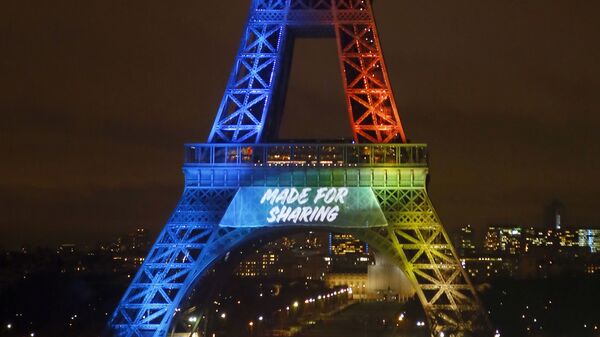The French government is reportedly going to reinforce an old law that mandated the use of the French language in several crucial sectors of communications, curbing the spread of Anglicism.
“In this linguistic globalisation, our duty is to refuse any tendency to move towards a single [world] language, [and] any weakening of the diversity of languages, as of cultures, in France and elsewhere,” said France’s Culture Minister Franck Riester, as quoted by The Times.
He said the law, adopted in 1994, would be tweaked for “the digital era”, to mobilise supporters with a message: “French is everyone’s business”.
This refers to the so-called Toubon Law, named after France’s then-culture minister. It required that the French language be mandatory in commercial advertisements and public announcements, workplace documents, commercial contracts, and product labelling.
The law also obliged state schools to teach in French and mandated that at least 40 per cent of songs played on the radio must be French.
In 2006, a subsidiary of General Electric was fined more than $700,000 under this law for not providing its French-speaking employees with translations for software, health-related documents and manuals written in English.
Franck Riester claimed that the legislation was “globally well applied and respected”, although some critics claim it has failed to stop French from being overcome by English.
Le Figaro, for instance, complained about the spread of English both in media and advertising just last week. The popular newspaper criticised Air France, the national flag carrier, for ditching its French slogan for the “France is in the air” campaign – and said that a law was supposed to protect the country “from the English invader”.
French linguist Bernard Cerquiglini said that the use of English in advertising was “distressing”. Cerquiglini singled out Made for Sharing, the English-language slogan which France adopted for the 2024 Summer Olympics. He stated that the slogan, which was once seen on the Eiffel Tower banner, is “contrary to the law and Olympic provisions”.
The Académie française – the centuries-old guardian of French – had earlier criticised the slogan, claiming that “it has already been used in other campaigns…notably for pizzas to share”.
According to Le Figaro, a dictionary of official French language terms was published in 1994, listing more than 3,000 Anglicisms to be replaced with French words – for instance, it recommended saying “tir de réparation” instead of “penalty”, “restovite” instead of “fast food restaurant”, and “cales de départ” instead of “starting blocks”.
However, tech and Internet slang mostly consists of English words, and Le Figaro bemoans that “only optimists still dream” of an effective Frenchification of this vocabulary.




